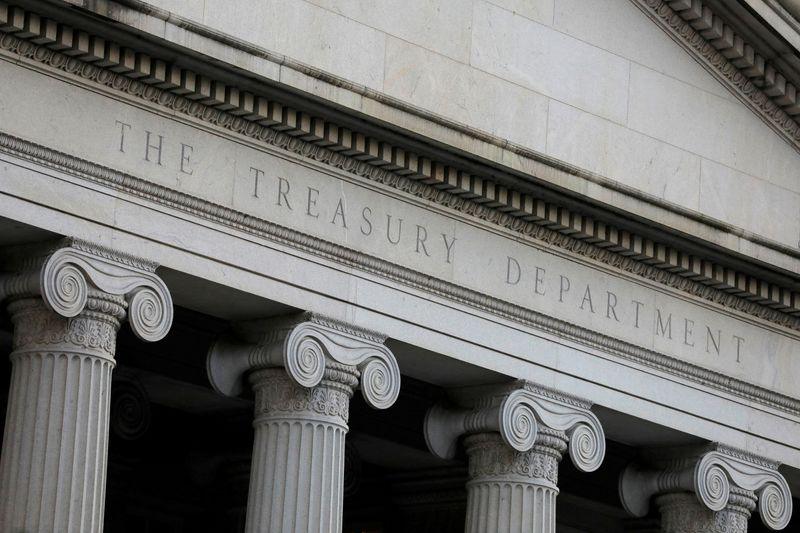By David Lawder
WASHINGTON (Reuters) – The U.S. budget deficit grew to $1.833 trillion for fiscal 2024, the highest outside of the COVID-19 era, as interest on the federal debt topped $1 trillion for the first time and spending grew for the Social Security retirement program, health care and the military, the Treasury Department said on Friday.
The deficit for the year ended Sept. 30 was up 8%, or $138 billion, from the $1.695 trillion recorded in fiscal 2023. It was the third-largest federal deficit in U.S. history, after the COVID-19 relief-driven deficits of $3.132 trillion in fiscal 2020 and $2.772 trillion in fiscal 2021.
The fiscal 2023 deficit had been reduced by the reversal of $330 billion of costs associated with President Joe Biden’s student loan program after it was struck down by the U.S. Supreme Court. It would have topped $2 trillion without this anomaly.
The sizable fiscal 2024 budget gap of 6.4% of gross domestic product, up from 6.2% a year earlier, could pose problems for Vice President Kamala Harris’ arguments ahead of the Nov. 5 presidential election that she would be a better fiscal steward than Republican opponent Donald Trump.
A fiscal think-tank, the Committee for a Responsible Federal Budget, has estimated that Trump’s plans would pile up $7.5 trillion in new debt, more than twice the $3.5 trillion envisaged from Harris’ proposals.
U.S. receipts for the 2024 fiscal year hit a record $4.919 trillion, up 11%, or $479 billion, from a year earlier, as individual non-withheld and corporate tax collections grew. Fiscal 2024 outlays rose 10%, or $617 billion, to $6.752 trillion.
The biggest driver of the year’s deficit was a 29% increase in interest costs for Treasury debt to $1.133 trillion, topping outlays for the Medicare healthcare program for seniors and defense spending.
But a senior Treasury official said the weighted average interest rate on federal debt interest costs began to decline in September for the first time since January 2022.
For September, the government reported a $64 billion surplus, compared to a $171 billion deficit in September 2023, but the improvement was largely due to calendar adjustments for benefit payments. Without these, there would have been a $16 billion deficit in September 2024.
Reported receipts were a record for September at $528 billion, up 13% from a year earlier, while outlays were $463 billion, down 27% largely due to the calendar adjustments.

